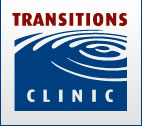A nationwide program in 14 states provides those released from prison with comprehensive health care including treatment for opioid use disorder
Implemented in 14 states and the territory of Puerto Rico, the Transitions Clinic Network (TCN) addresses social needs and provides comprehensive health services, including addiction treatment, for those exiting incarceration, many of whom suffer from opioid use disorder. Operating in neighborhoods impacted by incarceration, TCN provides a critical link to health and social services at a time when those returning from prison are particularly at risk for overdose. Care teams include trained community health workers with a history of incarceration to help participants navigate the treatment system and maintain motivation to stay in recovery.
A major outcome for TCN is reducing emergency department visits by providing immediate post-prison access to primary care and medication for opioid use disorder (MOUD), while linking participants to housing, employment, and legal services. A study examining the effectiveness of TCN compared to standard primary care in improving health and addiction measures is now underway. An overview of the program's rationale and objectives is available here, and see here for a detailed description, including videos, of how TCN integrates MOUD with primary care.
TCN programs provide access to high-quality medical care, integrated behavioral health services, and address social determinants of health.









